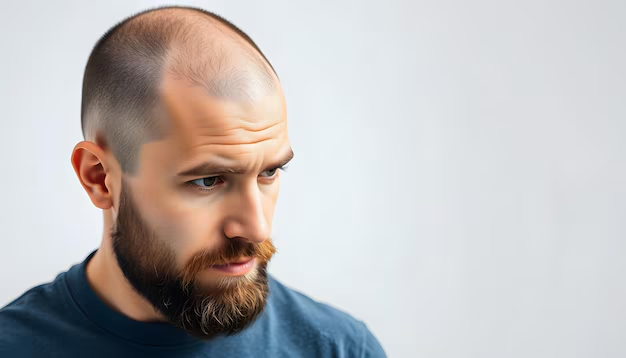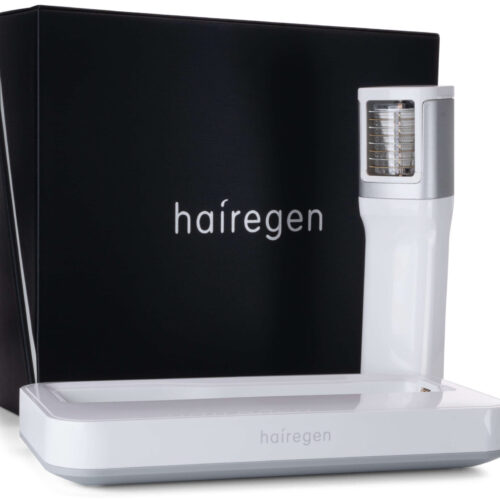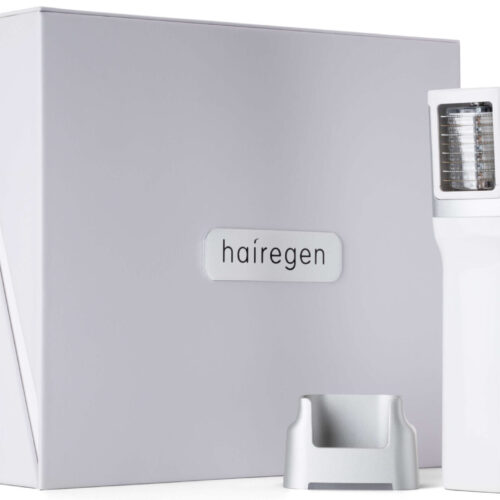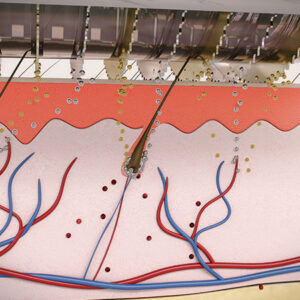Minoxidil, a topical solution widely used for treating hair loss, has been a subject of intense discussion and scrutiny in the world of hair care. Originally developed as a treatment for high blood pressure, minoxidil’s unexpected ability to promote hair growth has made it a popular choice among individuals seeking to combat thinning hair or baldness.
This article delves into the intricacies of minoxidil, exploring its mechanisms of action, potential benefits, and potential side effects. We’ll also examine who should exercise caution when using this treatment and explore alternative options for those seeking a different approach to hair loss management.
How Minoxidil Works
Minoxidil is believed to work by stimulating the hair follicles and increasing the duration of the growth phase (anagen) of the hair cycle. It does this by increasing blood flow to the hair follicles, providing them with essential nutrients and oxygen. Additionally, minoxidil may promote the production of certain growth factors that contribute to hair growth.

The Benefits of Using Minoxidil for Hair Loss
Promotes Hair Growth: One of the primary benefits of minoxidil is its ability to stimulate new hair growth and prevent further hair loss. Many users have reported seeing an increase in the thickness and density of their hair after consistent use.
Suitable for Both Men and Women: Minoxidil is approved for use by both men and women, making it a versatile option for individuals of all genders experiencing hair loss.
Non-Invasive Treatment: Unlike surgical hair restoration procedures, minoxidil is a non-invasive topical solution that can be easily applied at home, making it a convenient choice for many individuals.
Real-life Experiences: Minoxidil Success Stories
While results may vary, numerous individuals have shared their positive experiences with minoxidil. Here are a few success stories:
“After years of struggling with thinning hair, minoxidil has been a game-changer for me. I’ve noticed a significant improvement in the density and thickness of my hair, and I’m no longer self-conscious about my appearance.” – Sarah, 34
“As a man in my late 40s, I was starting to experience a receding hairline and thinning on the crown. Minoxidil has helped me regain some of my lost hair and boost my confidence.” – Mark, 47
Potential Side Effects of Minoxidil
While minoxidil is generally well-tolerated, it’s important to be aware of potential side effects. These may include:
- Skin Irritation: Some individuals may experience redness, itching, or dryness at the application site.
- Unwanted Hair Growth: Minoxidil can potentially cause unwanted hair growth on areas of the body where it is applied accidentally.
- Headaches: In rare cases, minoxidil users have reported experiencing headaches or dizziness.
It’s essential to consult with a healthcare professional if you experience any severe or persistent side effects while using minoxidil.
Who Should Avoid Using Minoxidil?
While minoxidil is generally considered safe for most individuals, there are certain groups who should exercise caution or avoid using it altogether:
- Pregnant or Breastfeeding Women: Due to potential risks, minoxidil is not recommended for use during pregnancy or breastfeeding unless advised by a healthcare professional.
- Individuals with Certain Medical Conditions: Those with conditions such as heart disease, kidney disease, or low blood pressure should consult with their doctor before using minoxidil.
- Children: Minoxidil is not approved for use in children, as its safety and effectiveness in this age group have not been established.
Alternatives to Minoxidil for Hair Loss Treatment
While minoxidil has proven to be effective for many individuals, it may not be the ideal solution for everyone. Here are some alternative treatments for hair loss:
Natural Remedies: Various natural ingredients, such as saw palmetto, biotin, and pumpkin seed oil, have been explored for their potential hair-promoting properties.
Laser Therapy: Low-level laser therapy (LLLT) is a non-invasive treatment that uses low-intensity light to stimulate hair growth.
Platelet-Rich Plasma (PRP) Therapy: This innovative treatment involves injecting the patient’s own platelet-rich plasma into the scalp to promote hair growth.
Hair Transplantation: For those seeking a more permanent solution, hair transplantation surgery can be an option, although it is a more invasive and costly procedure.
Hairegen Device: A revolutionary device that utilizes natural ingredients and low-level laser therapy to stimulate hair growth. Unlike minoxidil, it doesn’t have any potential side effects and is a safe and effective alternative.
If you’re looking for a natural and side-effect-free solution for hair loss, consider trying the Hairegen device. This innovative device combines the power of natural ingredients and low-level laser therapy to stimulate hair growth without any potential side effects. Visit [Hairegen website](https://hairegen.co) to learn more and take the first step towards a fuller, healthier head of hair.
Minoxidil Application Tips and Recommendations
To maximize the effectiveness of minoxidil and minimize potential side effects, it’s crucial to follow proper application guidelines:
Consistency is Key: Minoxidil requires consistent, long-term use to see optimal results. It’s essential to apply it as directed, typically twice daily.
Proper Technique: Apply minoxidil directly to the scalp, ensuring even coverage of the affected areas. Avoid getting the solution on other parts of the body or clothing.
Patience is Virtuous: It can take several months to see visible results from minoxidil. Patience and consistent use are crucial for success.
Follow Instructions: Always read and follow the instructions provided with your minoxidil product, as dosages and application methods may vary.

Minoxidil vs. Other Hair Loss Treatments: A Comparison
While minoxidil is a popular choice for hair loss treatment, it’s essential to understand how it compares to other available options:
| Treatment | Effectiveness | Side Effects | Cost | Convenience |
|---|---|---|---|---|
| Minoxidil | Moderately effective | Potential side effects | Relatively inexpensive | Topical application, twice daily |
| Finasteride (Propecia) | Highly effective for male pattern baldness | Potential sexual side effects | Moderate cost | Oral medication, once daily |
| Hair Transplantation | Permanent solution | Surgical risks, scarring | Expensive | Invasive procedure, recovery time |
| Laser Therapy | Moderately effective | Generally safe | Moderate cost | Requires regular sessions |
| Hairegen Device | Highly effective | No known side effects | Moderate cost | Convenient at-home use |
When choosing a hair loss treatment, it’s crucial to weigh the pros and cons of each option, considering factors such as effectiveness, potential side effects, cost, and convenience.
Hairegen vs. Minoxidil: A Comprehensive Comparison
When it comes to addressing hair loss, both Hairegen and Minoxidil (Rogaine®) offer effective solutions. However, their approaches, mechanisms, and overall benefits differ significantly. Here’s a detailed comparison to help you make an informed choice.
How They Work
| Feature | Hairegen Devices | Minoxidil (Rogaine®) |
|---|---|---|
| Mechanism | Combines electrical stimulation, biochemical action, and mechanical massage. Premium model adds soft laser technology. | Expands blood vessels in the scalp to improve blood flow and stimulate hair follicles. |
| Technology | Patented, multi-action device using zinc and copper ions to counter DHT (primary cause of baldness). | Topical solution or foam applied directly to the scalp. |
| Target Areas | Scalp-wide treatment for hair regrowth and strengthening. | Effective for crown and vertex hair loss; less effective for receding hairlines. |
Effectiveness and Results
| Feature | Hairegen Devices | Minoxidil (Rogaine®) |
|---|---|---|
| Timeline for Results | Visible improvement within 3–4 months. | Results take 6–12 months to become noticeable. |
| Hair Regrowth | Increases density, thickness, and follicle activity. | Promotes regrowth but limited to specific scalp areas. |
| Sustainability | Long-lasting results with consistent use and no dependency on chemicals. | Results revert if discontinued. |
Ease of Use
| Feature | Hairegen Devices | Minoxidil (Rogaine®) |
|---|---|---|
| Application | Simple 5-minute daily treatment with a handheld device. | Applied once daily for women, twice daily for men. |
| Convenience | Non-messy, no residue, and easy to integrate into your routine. | Can leave residue; requires specific timing to dry. |
Side Effects
| Feature | Hairegen Devices | Minoxidil (Rogaine®) |
|---|---|---|
| Safety Profile | Clinically proven safe with no significant side effects reported. | Scalp irritation, dryness, itching, and excessive shedding during the initial use period. |
| Health Impact | Non-invasive and drug-free. | Contains chemicals; may not suit sensitive scalps. |
Cost and Investment
| Feature | Hairegen Devices | Minoxidil (Rogaine®) |
|---|---|---|
| Upfront Cost | One-time investment. | $30–$50 per month for continuous use. |
| Long-Term Expense | No recurring costs beyond initial purchase. | Requires ongoing purchases, adding up over time. |
Why Hairegen is the Superior Choice
- Comprehensive Treatment: Unlike Minoxidil, which mainly increases blood flow, Hairegen addresses the root causes of hair loss, such as DHT buildup, reduced follicular activity, and poor scalp health.
- Faster Results: Hairegen users typically see noticeable changes within 3–4 months, while Minoxidil often takes up to a year.
- No Side Effects: Hairegen’s non-invasive technology eliminates the risk of irritation, dryness, or other side effects associated with Minoxidil.
- Convenience: With just 5 minutes of daily use, Hairegen fits seamlessly into your routine without the mess or hassle of applying topical solutions.
- Cost-Effective: A one-time purchase of Hairegen eliminates the need for continuous spending, making it a more affordable long-term solution.
Best selling hair growth products:
Where to Buy Minoxidil and How to Choose the Right Product
Minoxidil is widely available over-the-counter and can be purchased from various sources, including pharmacies, online retailers, and beauty supply stores. However, it’s essential to choose a reputable brand and product to ensure safety and effectiveness.
When selecting a minoxidil product, consider the following factors:
Concentration: Minoxidil is available in different concentrations, typically 2% and 5% for women and men, respectively. Follow your healthcare provider’s recommendations regarding the appropriate concentration for your needs.
Formulation: Minoxidil is available in various formulations, such as solutions, foams, and sprays. Choose a formulation that suits your preferences and application needs.
Brand Reputation: Opt for well-known and reputable brands that adhere to strict quality standards and have a proven track record.
Price: While minoxidil is generally affordable, prices can vary between brands and retailers. Compare prices and look for discounts or bulk purchasing options to save money in the long run.
Conclusion: Is Minoxidil the Right Choice for You?
Minoxidil has proven to be an effective solution for many individuals struggling with hair loss. However, it’s essential to carefully consider the potential side effects, weigh the pros and cons against alternative treatments, and consult with a healthcare professional before starting any new hair loss regimen.
For those seeking a natural and side-effect-free alternative, the Hairegen device offers a promising solution. By combining the power of natural ingredients and low-level laser therapy, this innovative device provides a safe and effective way to promote hair growth without the potential risks associated with minoxidil or other conventional treatments.
Ultimately, the decision to use minoxidil or explore other options should be based on individual needs, preferences, and a thorough understanding of the risks and benefits involved. With the right approach and commitment, achieving a fuller, healthier head of hair is within reach.





